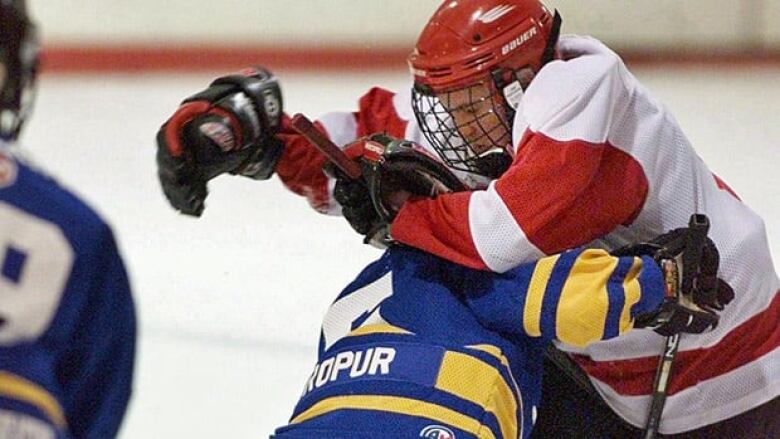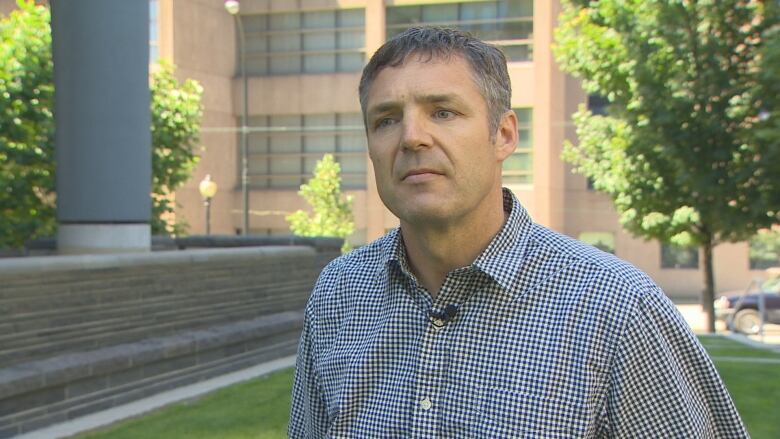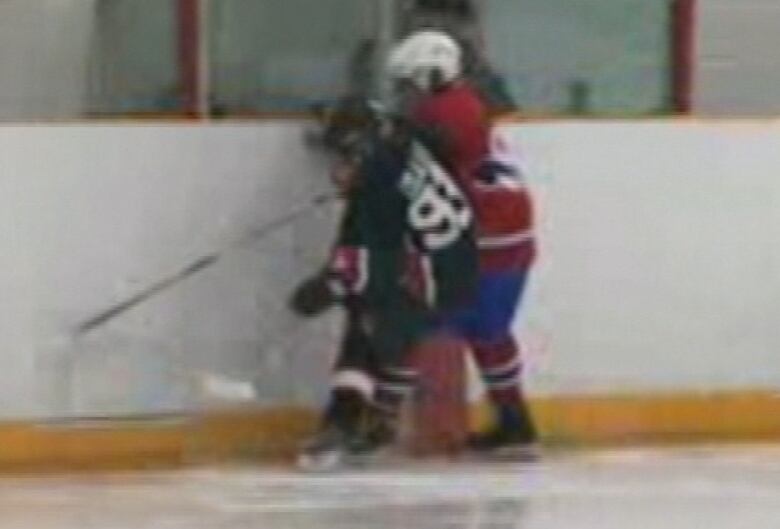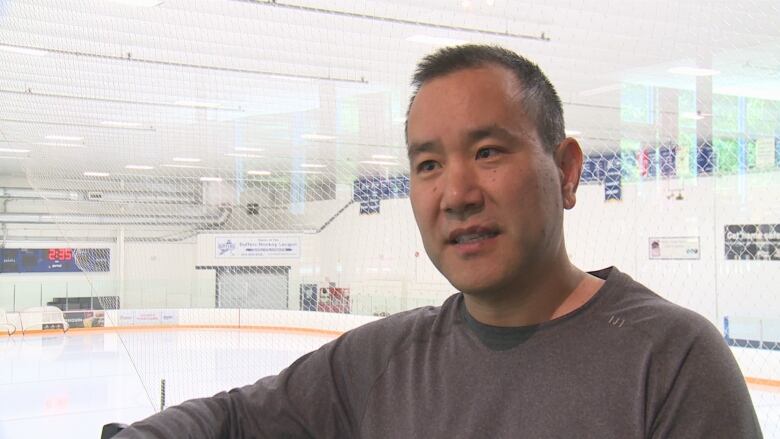Campaign to ban bodychecking in bantam hockey divides parents
Up to 20,000 kids receive concussions or spinal cord injuries every year, injury lawyer says

Michael Matsubuchigrew up playing hockey on the North Shore. Now, with two kids following in his footsteps, he can't help but stress one simple rule keep your head up.
"They've got to be prepared," he said while watching his sons practice at the Canlan Ice Centre. "If you don't keep your head up, and you get hit ... you're gonna be hearing footsteps behind you for the rest of the season."
Matsubuchi's kids, 7 and 9, won't be playing full contact until they turn 13. But if a campaign's call to ban bodychecking in bantam hockey is answered, they might have to wait a couple of years longer.
According to critical injury lawyer Michael Thomas, thousands of teenagers in Canada receive spinal cord or brain injuries from bodychecks each year.
He wants to see them gone and he says that many parents across Canada do too.

Bantam bodychecks
According to research from the University of Calgary, 86 per cent of minor hockey-related injuries come from bodychecks.
"The majority [of concussions] are due to clean hits," he told CBC News. "You have all these kids suffering these injuries, and the question is, why?"
Thomas has launched a campaign to raise the age of bodychecking to 15. The move echos a recommendation made by theAmerican Academy of Pediatrics to limit the number concussions endured by young hockey players.
According to the AAP, injury rates at the bantam level are particularly high, due the age group'sbroadrange of physical maturity and body size.
"It has the largest height, weightand power discrepancyof any age cohort," said Thomas."You've got kids that haven't hit puberty playing against kids that have hit puberty."
"It's craziness."

A parental divide
Bodychecking in bantam competition has been eliminated in many less-competitive Canadian leagues, but Thomas is calling on Hockey Canada to make the change to their official rules, which greatly influences how games in elite Canadian leagues are played.
In fact, Hockey Canada has altered the ruleset in the past, In 2013, the organization voted to eliminate bodychecking in peewee hockey (ages 11 and 12), after research found it led to a threefold increase in body and head injuries.
CBC News reached out to Hockey Canada to see if it would consider such a rule change to its official ruleset, but no one was available for comment.
Thomas says many parents are in favour of increasing the age to 15. A survey from the Rick Hansen Institute found that over 60 per cent of parents would be in favour of the change.
But other parents believe it could come at a cost.
"It's OKthe way it is," saidMatsubuchi, who worries upping the age could leave kids less prepared, once they enter higher levels of competition.

"[Increasing the age]depends on what the Europeans are doing, what the Americans are doing you've got to compete with them," he said.
"They're catching up. We've got to be concerned about making it too easy on the players ... [full contact] is going to come, if they're going to play at the elite level."
Corrections
- A previous version of this story misidentified the group which conducted the survey raising the age for bodychecking. The survey was conducted by The Rick Hansen Institute.Jul 07, 2017 11:21 AM PT












_(720p).jpg)


 OFFICIAL HD MUSIC VIDEO.jpg)
.jpg)



























































































